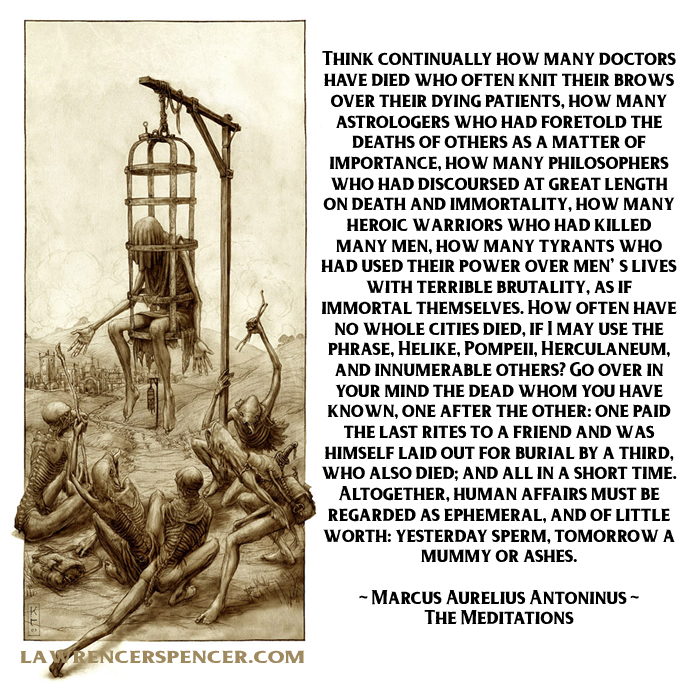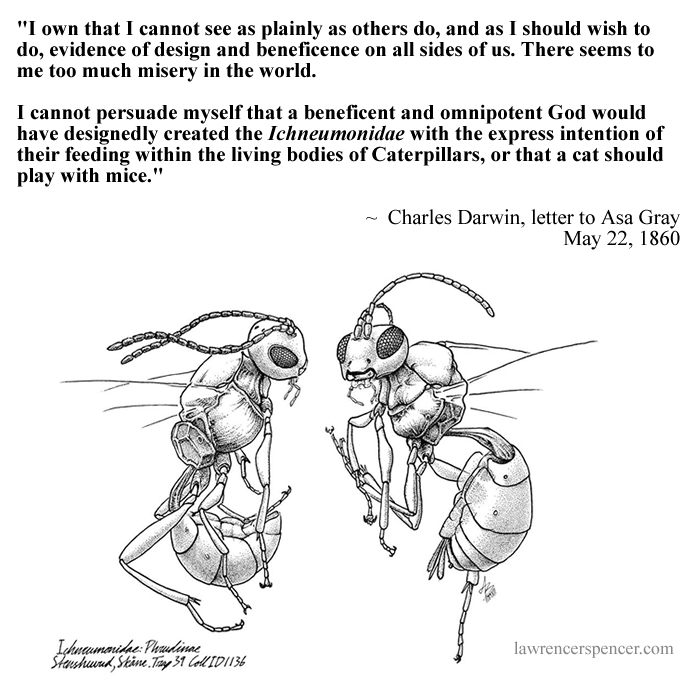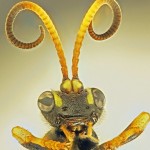Republished by Blog Post Promoter
 “Think continually how many doctors have died who often knit their brows over their dying patients, how many astrologers who had foretold the deaths of others as a matter of importance, how many philosophers who had discoursed at great length on death and immortality, how many heroic warriors who had killed many men, how many tyrants who had used their power over men’s lives with terrible brutality, as if immortal themselves. How often have no whole cities died, if I may use the phrase, Helike, Pompeii, Herculaneum, and innumerable others? Go over in your mind the dead whom you have known, one after the other: one paid the last rites to a friend and was himself laid out for burial by a third, who also died; and all in a short time. Altogether, human affairs must be regarded as ephemeral, and of little worth: yesterday sperm, tomorrow a mummy or ashes.”
“Think continually how many doctors have died who often knit their brows over their dying patients, how many astrologers who had foretold the deaths of others as a matter of importance, how many philosophers who had discoursed at great length on death and immortality, how many heroic warriors who had killed many men, how many tyrants who had used their power over men’s lives with terrible brutality, as if immortal themselves. How often have no whole cities died, if I may use the phrase, Helike, Pompeii, Herculaneum, and innumerable others? Go over in your mind the dead whom you have known, one after the other: one paid the last rites to a friend and was himself laid out for burial by a third, who also died; and all in a short time. Altogether, human affairs must be regarded as ephemeral, and of little worth: yesterday sperm, tomorrow a mummy or ashes.”
| Marcus Aurelius Antoninus, The Meditations |
Marcus Aurelius Antoninus — 26 April 121 – 17 March 180 AD) was Roman Emperor from 161 to 180. He ruled with Lucius Verus as co-emperor from 161 until Verus’ death in 169. He was the last of the Five Good Emperors, and is also considered one of the most important Stoic philosophers.
During his reign, the Empire defeated a revitalized Parthian Empire in the East: Aurelius’ general Avidius Cassius sacked the capital Ctesiphon in 164. In central Europe, Aurelius fought the Marcomanni, Quadi, and Sarmatians with success during the Marcomannic Wars, although the threat of the Germanic tribes began to represent a troubling reality for the Empire. A revolt in the East led by Avidius Cassius failed to gain momentum and was suppressed immediately.
Marcus Aurelius’ Stoic tome Meditations, written in Greek while on campaign between 170 and 180, is still revered as a literary monument to a philosophy of service and duty, describing how to find and preserve equanimity in the midst of conflict by following nature as a source of guidance and inspiration.




